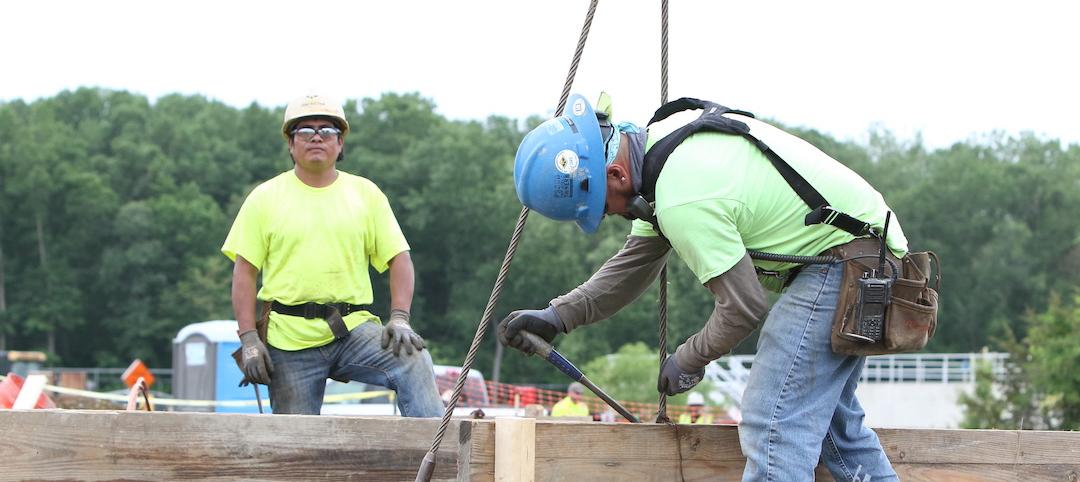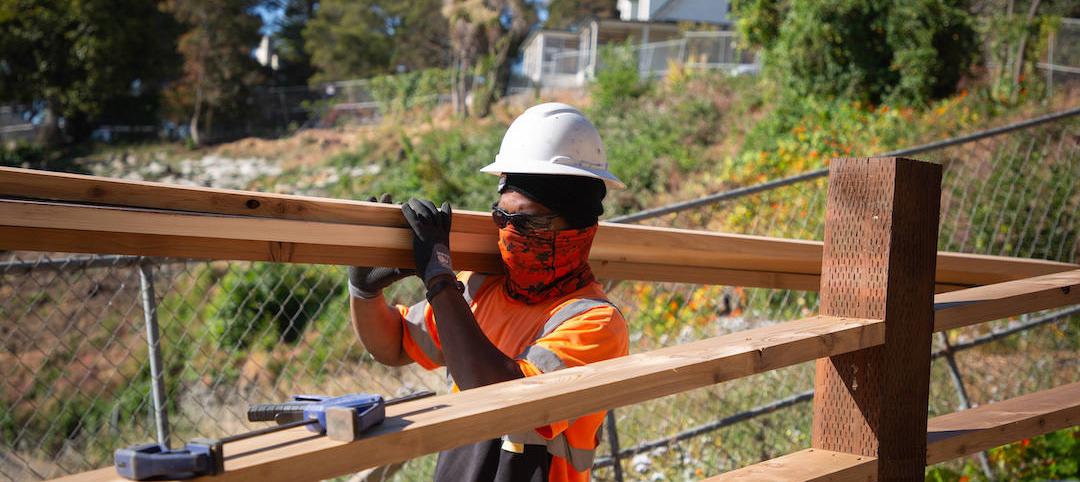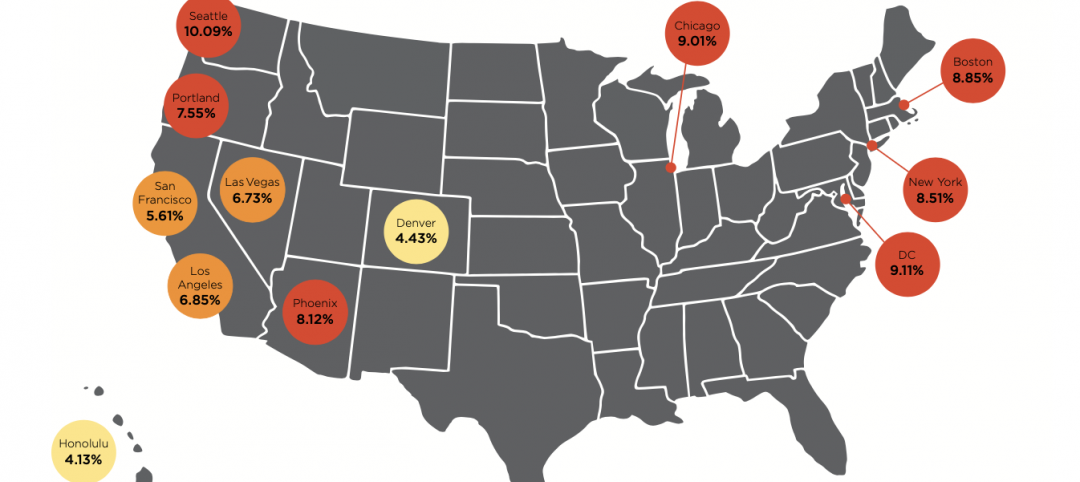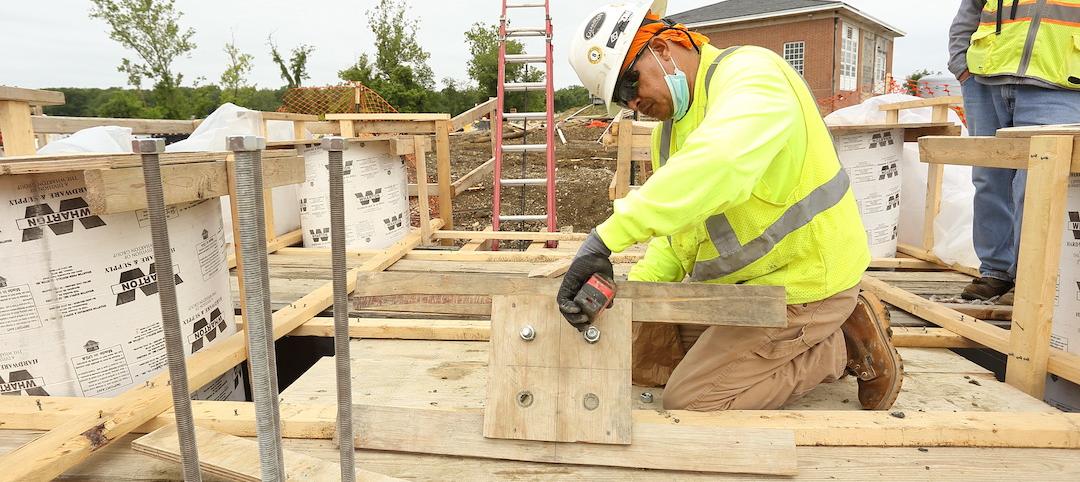Only 30% of the nation’s metro areas added construction jobs in the past year, according to an analysis of new government data that the Associated General Contractors of America released today. Association officials said construction employment in most parts of the country was being impacted by pandemic as businesses and local governments curtail planned construction projects.
“The pandemic has devastated the finances for businesses, institutions, and state and local governments, leading to widespread postponements and cancellations of construction projects,” said Ken Simonson, the association’s chief economist. “As contractors use up the funds from Paycheck Protection Program loans, even more job losses are inevitable unless the federal government provides an immediate economic boost.”
Construction employment fell in 209, or 58%, of 358 metro areas between October 2019 and October 2020. Construction employment was stagnant in 40 other metro areas, meanwhile, and only 109 metro areas—30%—added construction jobs during the past year.
Houston-The Woodlands-Sugar Land, Texas lost the most construction jobs over those 12 months (-19,800 jobs, -8%), followed by New York City (-17,300 jobs, -11%); Montgomery-Bucks-Chester Counties, Pa. (-12,100 jobs, -21%); and Minneapolis-St. Paul-Bloomington, Minn. (-10,400 jobs, -11%). Brockton-Bridgewater-Easton, Mass. had the largest percentage decline (-43%, -2,500 jobs), followed by Bloomsburg-Berwick, Pa. (-36%, -500 jobs); Altoona, Pa. (-32%, -1,000 jobs); Johnstown, Pa. (-30%, -800 jobs); and East Stroudsburg, Pa. (-30%, -600 jobs).
Dallas-Plano-Irving, Texas added the most construction jobs over the year (7,100 jobs, 5%), followed by Seattle-Bellevue-Everett, Wash. (4,700 jobs, 4%); Kansas City, Mo. (3,700 jobs, 12%); and Boise, Idaho (3,500 jobs, 13%). Walla Walla, Wash. had the highest percentage increase (25%, 300 jobs), followed by Lewiston, Idaho-Wash. (18%, 300 jobs); Oshkosh-Neenah, Wisc. (16%, 900 jobs); Fond du Lac, Wisc. (15%, 500 jobs); and Springfield, Mo. (15%, 1,400 jobs).
Association officials said the best way to curtail future construction job losses was for Congress to pass new federal coronavirus relief measures. These measures should include making new infrastructure investments, eliminating plans to tax Paycheck Protection Program loans and enacting liability reform to protect honest businesses from baseless coronavirus lawsuits.
“Construction employment is likely to continue falling in many parts of the country unless Congress quickly passes new coronavirus relief measures,” said Stephen E. Sandherr, the association’s chief executive officer. “Boosting infrastructure projects, preserving the benefits of the Paycheck Protection Program and protecting businesses from predatory attorneys will help stabilize the economy and demand for construction.”
View the metro employment 12-month data, rankings, top 10, new highs and lows, map.
Related Stories
Market Data | Jan 27, 2022
Dallas leads as the top market by project count in the U.S. hotel construction pipeline at year-end 2021
The market with the greatest number of projects already in the ground, at the end of the fourth quarter, is New York with 90 projects/14,513 rooms.
Market Data | Jan 26, 2022
2022 construction forecast: Healthcare, retail, industrial sectors to lead ‘healthy rebound’ for nonresidential construction
A panel of construction industry economists forecasts 5.4 percent growth for the nonresidential building sector in 2022, and a 6.1 percent bump in 2023.
Market Data | Jan 24, 2022
U.S. hotel construction pipeline stands at 4,814 projects/581,953 rooms at year-end 2021
Projects scheduled to start construction in the next 12 months stand at 1,821 projects/210,890 rooms at the end of the fourth quarter.
Market Data | Jan 19, 2022
Architecture firms end 2021 on a strong note
December’s Architectural Billings Index (ABI) score of 52.0 was an increase from 51.0 in November.
Market Data | Jan 13, 2022
Materials prices soar 20% in 2021 despite moderating in December
Most contractors in association survey list costs as top concern in 2022.
Market Data | Jan 12, 2022
Construction firms forsee growing demand for most types of projects
Seventy-four percent of firms plan to hire in 2022 despite supply-chain and labor challenges.
Market Data | Jan 7, 2022
Construction adds 22,000 jobs in December
Jobless rate falls to 5% as ongoing nonresidential recovery offsets rare dip in residential total.
Market Data | Jan 6, 2022
Inflation tempers optimism about construction in North America
Rider Levett Bucknall’s latest report cites labor shortages and supply chain snags among causes for cost increases.
Market Data | Jan 6, 2022
A new survey offers a snapshot of New York’s construction market
Anchin’s poll of 20 AEC clients finds a “growing optimism,” but also multiple pressure points.
Market Data | Jan 3, 2022
Construction spending in November increases from October and year ago
Construction spending in November totaled $1.63 trillion at a seasonally adjusted annual rate.

















